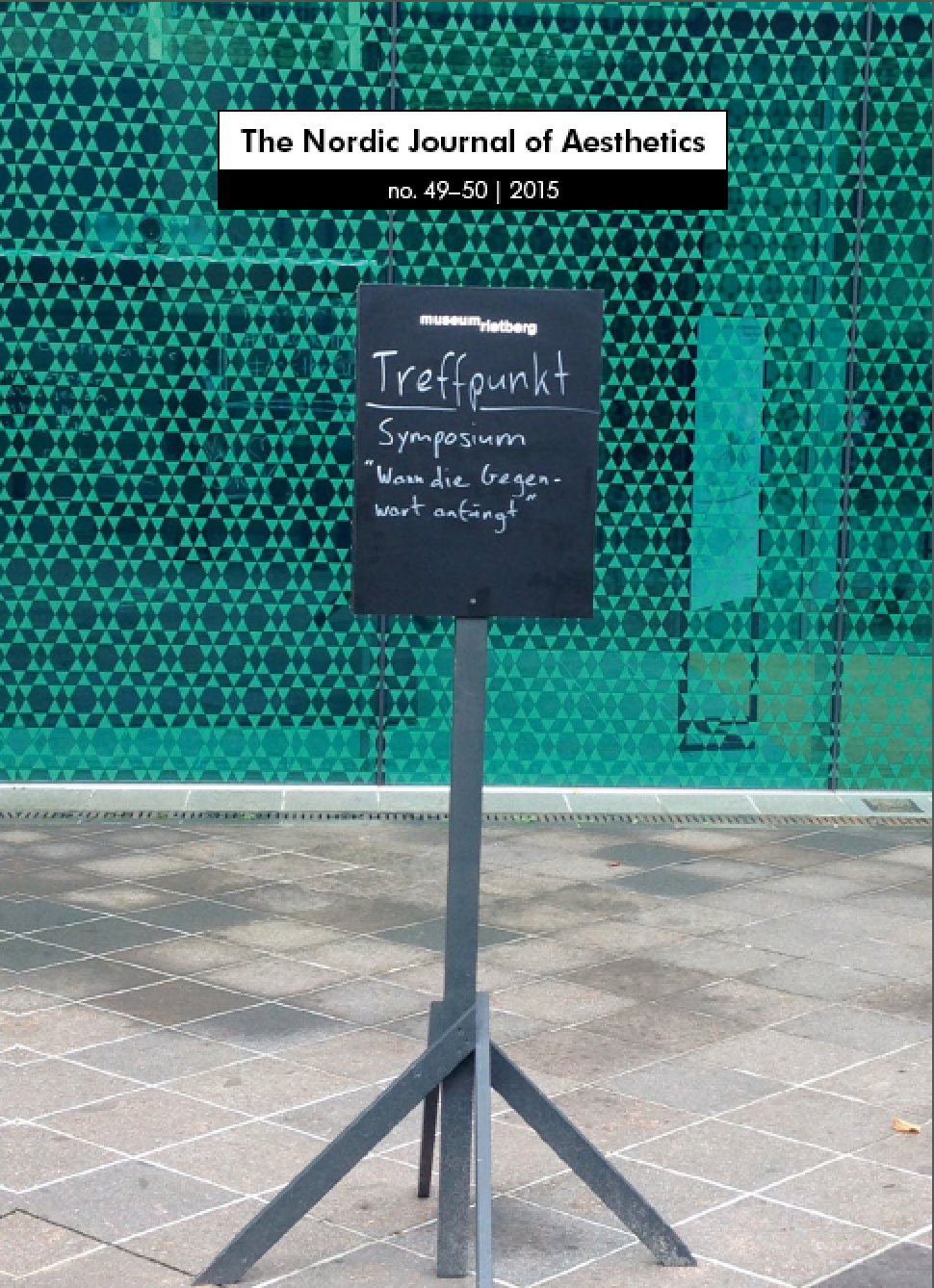Existential Urgency: Contemporaneity, Biennials and Social Form
DOI:
https://doi.org/10.7146/nja.v24i49-50.23321Keywords:
Anthropology, Biennials, Coeval, Contemporaneity, Contemporary art, Global capitalism, Modern, Postcolonial, Postconceptual, Tradition, Third WorldAbstract
What happens to the form of the biennial when biennials become part of a world system of art institutions, subject to the historical temporality of a global contemporaneity? In particular, what happens when the periodic rhythms of national narratives of biennial exhibitions are overcoded by a serial sequence of international biennials – competing for contemporaneity – seemingly without end? This essay approaches these questions via a consideration of the debate about the transitional symbolic significance of the 1989 Third Havana Biennale. It contrasts three historical problematics of ‘the contemporary’ as models through which to think the cultural function of biennials: (i) the critique of anthropology, or, the coeval; (ii) socialist post- coloniality, or the avant-garde construction of traditions; (iii) the historical contemporaneity of a global capitalist modernity.Downloads
Published
2016-03-11
How to Cite
Osborne, P. (2016). Existential Urgency: Contemporaneity, Biennials and Social Form. The Nordic Journal of Aesthetics, 24(49-50). https://doi.org/10.7146/nja.v24i49-50.23321
Issue
Section
Articles
License
Authors who publish with this journal agree to the following terms:
- Authors retain copyright and grant the journal right of first publication with the work simultaneously licensed under a Creative Commons Attribution License that allows others to share the work with an acknowledgement of the work's authorship and initial publication in this journal.
- Authors are able to enter into separate, additional contractual arrangements for the non-exclusive distribution of the journal's published version of the work (e.g., post it to an institutional repository or publish it in a book), with an acknowledgement of its initial publication in this journal.
- Authors are permitted and encouraged to post their work online (e.g., in institutional repositories or on their website) prior to and during the submission process, as it can lead to productive exchanges, as well as earlier and greater citation of published work (See The Effect of Open Access).




